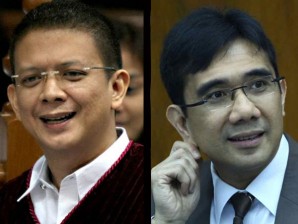Senator Francis Escudero and Iloilo Representative Niel Tupas Jr. are not about to give up their claim to sit in the Judicial and Bar Council (JBC) at the same time.
In a petition filed by the Office of the Solicitor General (OSG), Escudero and Tupas on Tuesday urged the Supreme Court to recall its July 17 ruling by a 7-2 vote that declared unconstitutional the presence of two congressional representatives in the JBC.
Relying heavily on the dissenting opinion of Associate Justice Roberto Abad, the lawmakers insisted that the high tribunal “gravely erred” in granting the petition filed by former Solicitor General Francisco Chavez.
“With all due respect, the [Supreme Court] committed a reversible error in taking cognizance of [Chavez’s] petition,” the two said in a 29-page pleading.
For one, they said it was “improper” for the court to treat Chavez’s petition as a request for “declaratory relief” since such an action should only be asked “only before the breach” of a law.
The lawmakers noted that Chavez himself argued that the eight-member composition of the JBC is a violation of Section 8, Article VIII of the 1987 Constitution, which states that only “a representative of Congress” may participate in the body tasked to vet nominees to senior judicial posts.
“(H)ence, if this petition were for one for declaratory relief, then it should have been dismissed by the Honorable Court,” the paper read. “Neither may the Honorable Court justify its taking cognizance of the case on the ground that the present petition is also one for prohibition.”
The petition said that while the high court was correct when it said that when the law is “clear and unambiguous, it must be taken to mean exactly what it says,” it added that applying this to the constitutional provision on the JBC membership “will result in absurdity or incongruity.”
“It is equally true that where the literal adherence to the language of a statute would produce absurd result unless the appropriate word or words are written or omitted therein, the court has the power to supply or omit the words from a statute in order to prevent an absurd result,” the lawmakers stressed.
“Interpreting the words ‘a representative from Congress’ in Section 8, Article VII of the Constitution to mean a representative from each house of the Congress is more in harmony with the other relevant provisions in our Constitution and related principles,” they said. “Hence, the present composition of the JBC is constitutional.”
